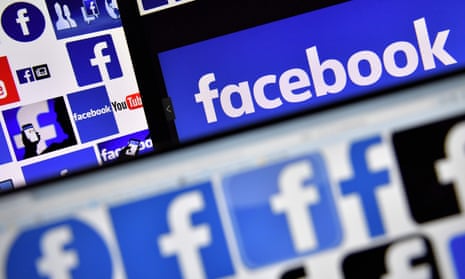Americans want major technology companies to be regulated, with legal responsibility for the content they carry on their platforms and harsher punishment for breaches of data privacy, according to a nationally representative survey of 2,500 adults.
In the wake of the Cambridge Analytica scandal, the way that technology companies handle our personal data and moderate the content – including fake news, hate speech and terrorist propaganda – on their platforms has been thrown under the microscope.
The increased scrutiny appears to have increased the public’s appetite for more stringent regulation of the tech giants, with 83% of people seeking tougher regulations and penalties for breaches of data privacy and 84% believing that technology companies should be legally responsible for the content they carry on their systems. Technology companies are currently protected from legal responsibility for most content thanks to section 230 of the Communications Decency Act.
About 53% of people feel the tech sector should be regulated by the federal government in the way big banks are. That figure rose to 62% among baby boomers.
These results, from the inaugural Tech Media Telecom Pulse Survey, by HarrisX, represent a striking departure from responses to a similar set of questions in November 2017, when just 49% of Americans felt that tech firms needed regulation.
“Public opinion last year was largely evenly split on the need to regulate technology companies,” said Dritan Nesho, CEO of HarrisX. “It has now swung in the opposite direction due to a series of scandals around fake news, platform bias, foreign interference and privacy concerns, which have rightly been called the ‘annus horribilis’ of the tech sector.”
The survey was conducted right after the Facebook CEO, Mark Zuckerberg, delivered many hours of testimony before Congress last week. The poll included a section of questions dedicated to the social network.
The results show that Americans don’t believe Facebook is a neutral platform. Sixty-six percent view it as a media company that prioritises some types of content over others, with 55% believing there to be evidence of political bias and censorship in its results – a view that’s more prevalent (70%) among Republicans.
In questions comparing Facebook with other companies (Twitter, Google, YouTube, Apple, Amazon, Microsoft, LinkedIn and Snapchat), the social network came out badly. Forty-four percent disagreed with the statement “Facebook cares about privacy” while 46% disagreed with the notion that it “protects my personal information”. Twitter scored the second-worst in these categories, with 33% and 30% respectively. When asked whether companies improved users’ mental health, Facebook had the most detractors, with 41% disagreeing with the notion, compared with Twitter’s 32%.
Although Facebook has borne the brunt of the scrutiny over the last couple of weeks, 61% of the public believes that other tech CEOs should be summoned before Congress to explain their data privacy and security practices.
The Cambridge Analytica scandal was a “perfect storm that caught Facebook in its crosshairs”, said Nesho, “but it is by no means solely a Facebook issue.”
It wasn’t all bad for the technology sector. Sixty-three percent of Americans perceive technology to be a “good force”, with 68% perceiving it to have a “positive impact on the world”. However, when they were asked about specific companies, none received majority approval for being “good for democracy”.
“The public has a complex relationship with personal technology. Broadly speaking, a majority of Americans perceive technology to be a good force on the world,” said Nesho. “But dig deeper and you find very conflicted views on a series of important social issues.”
